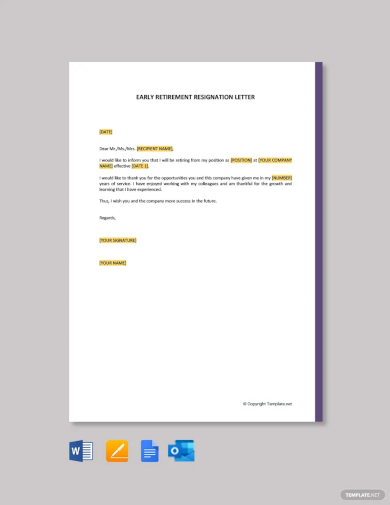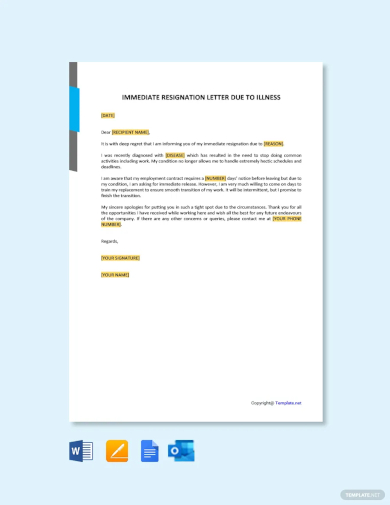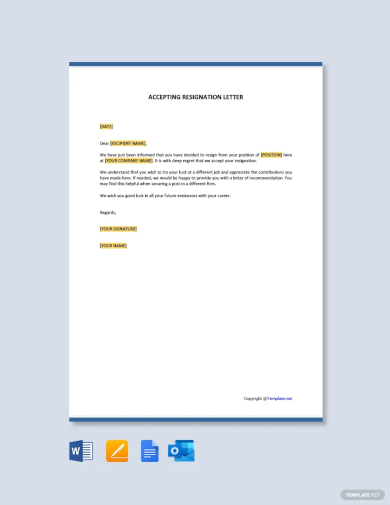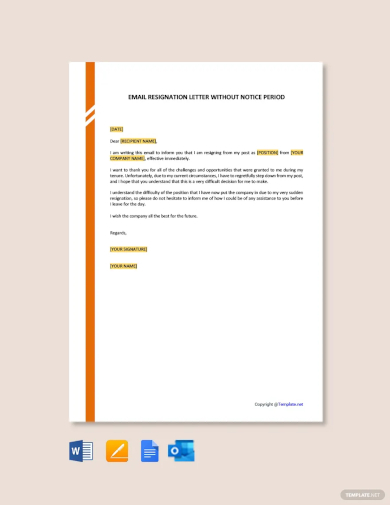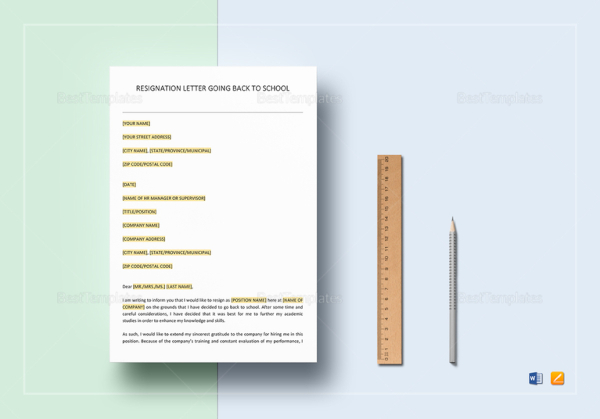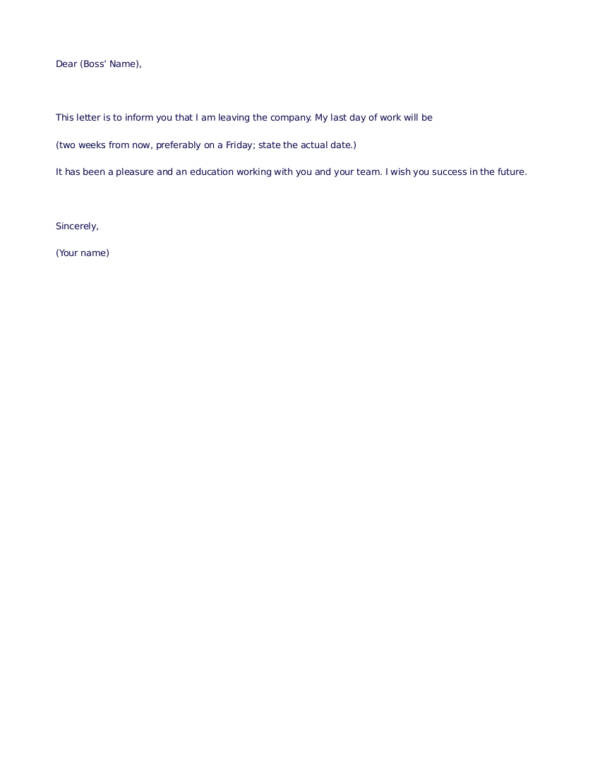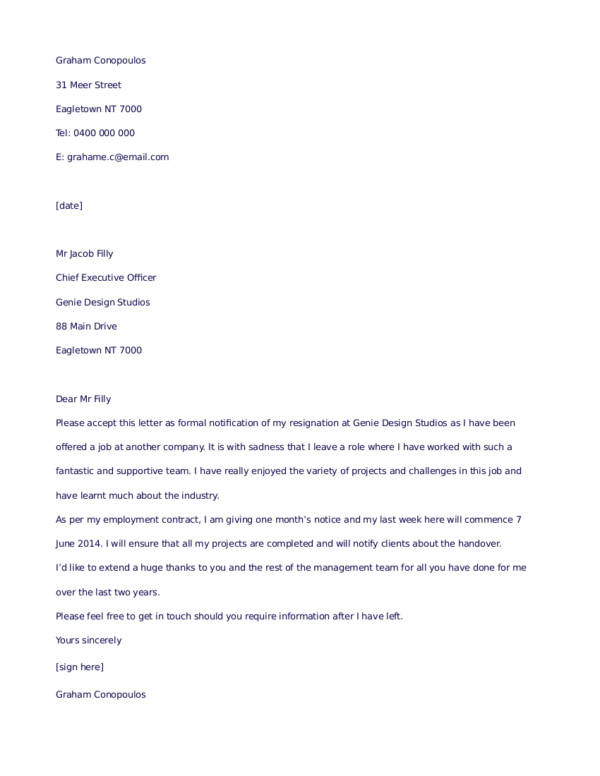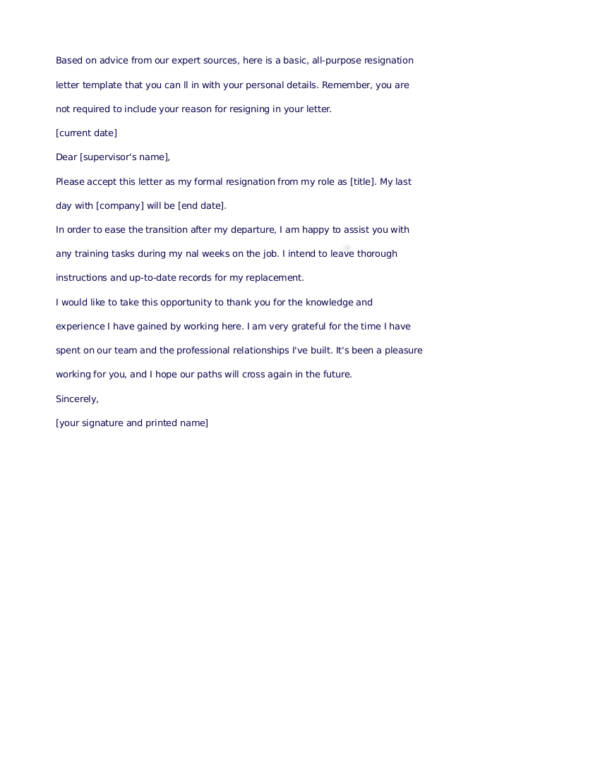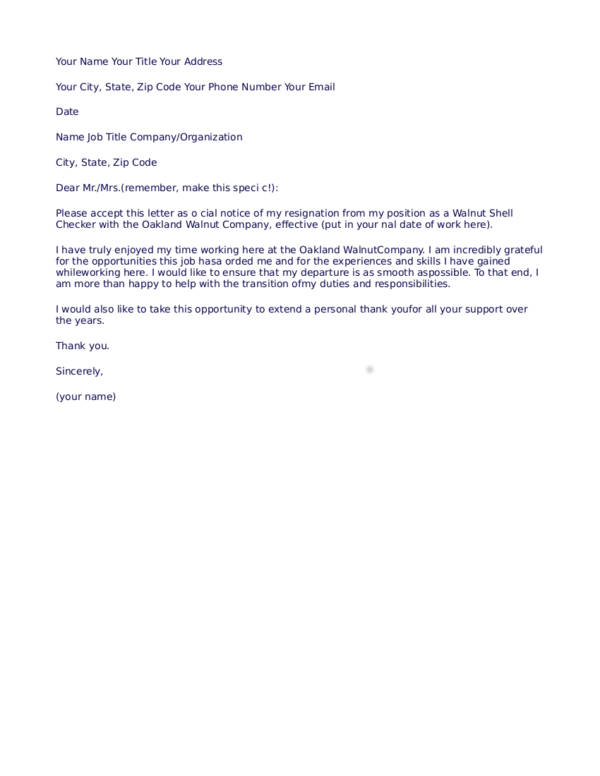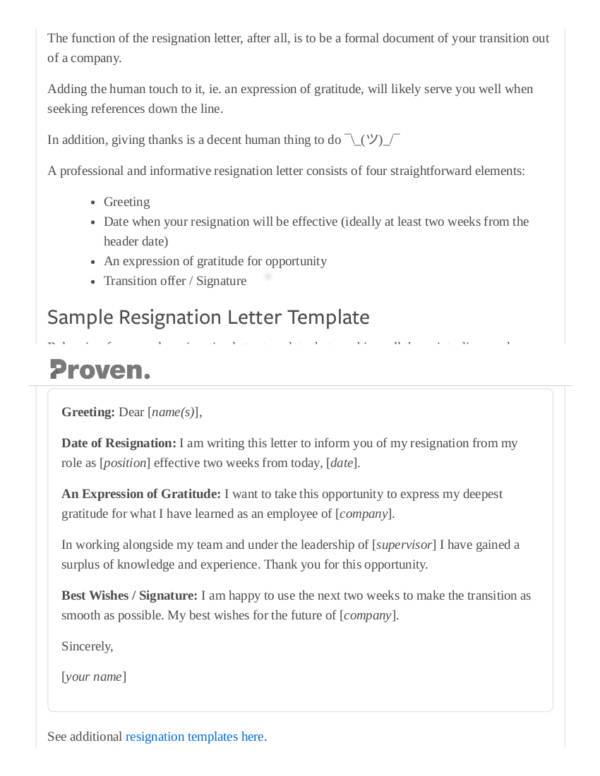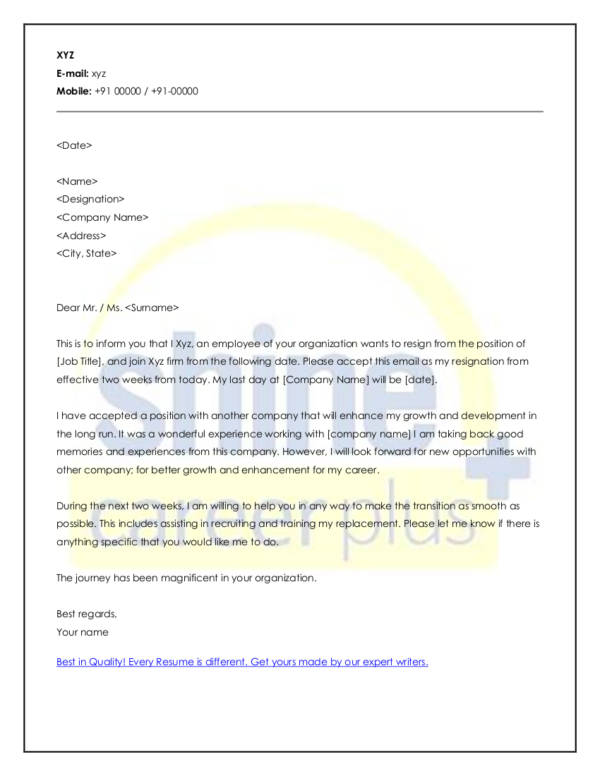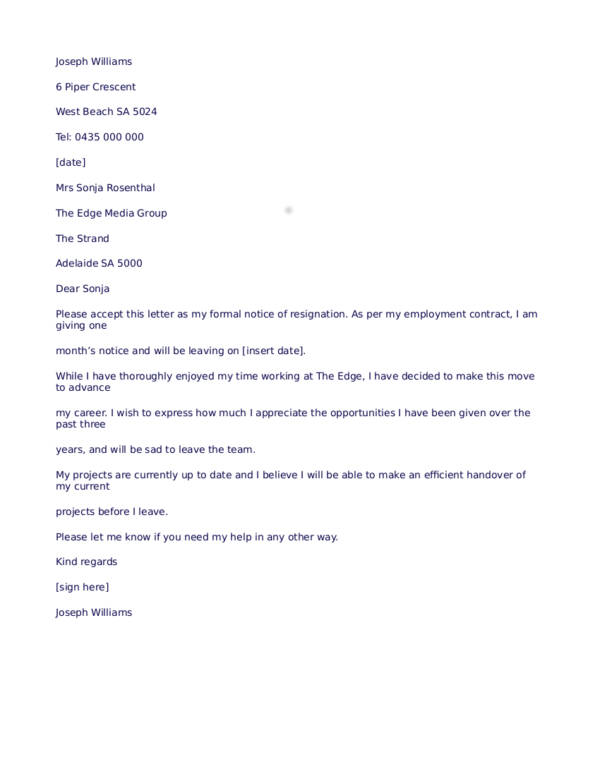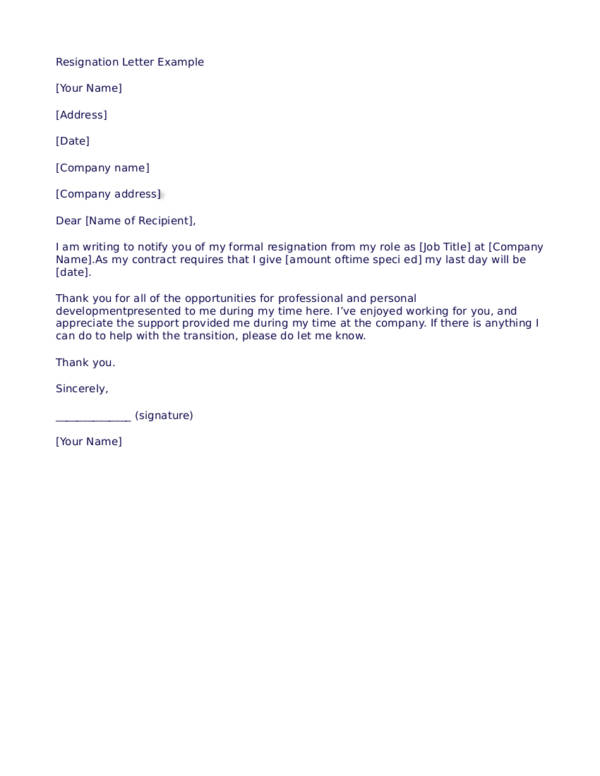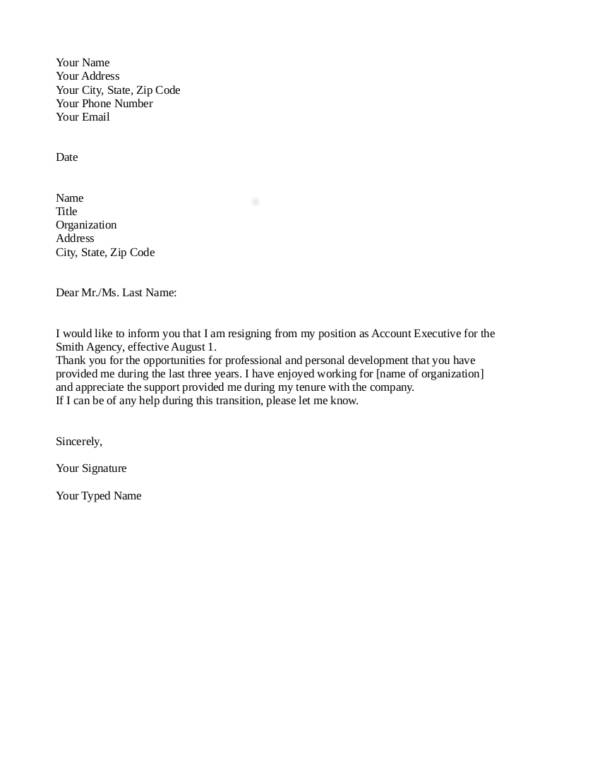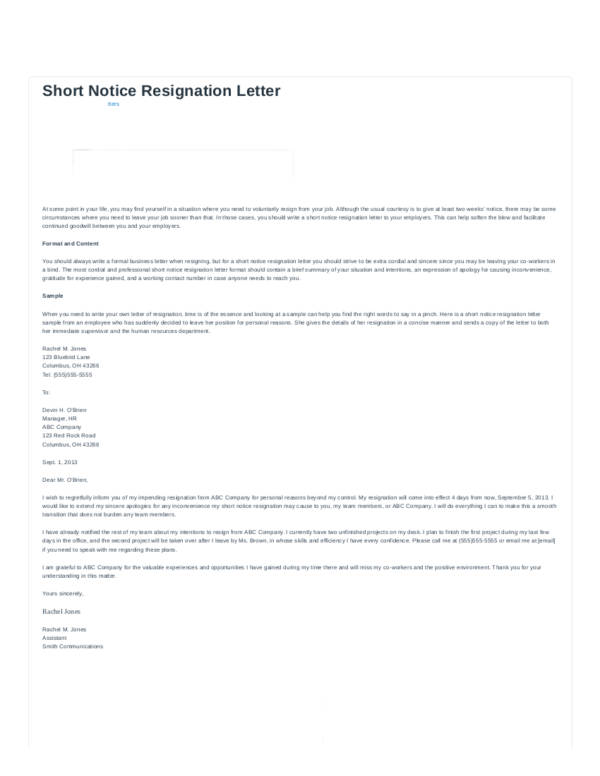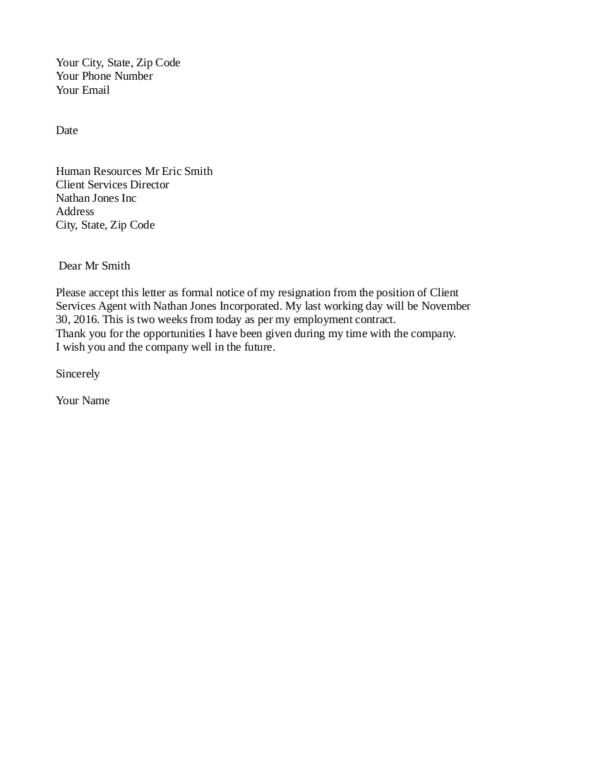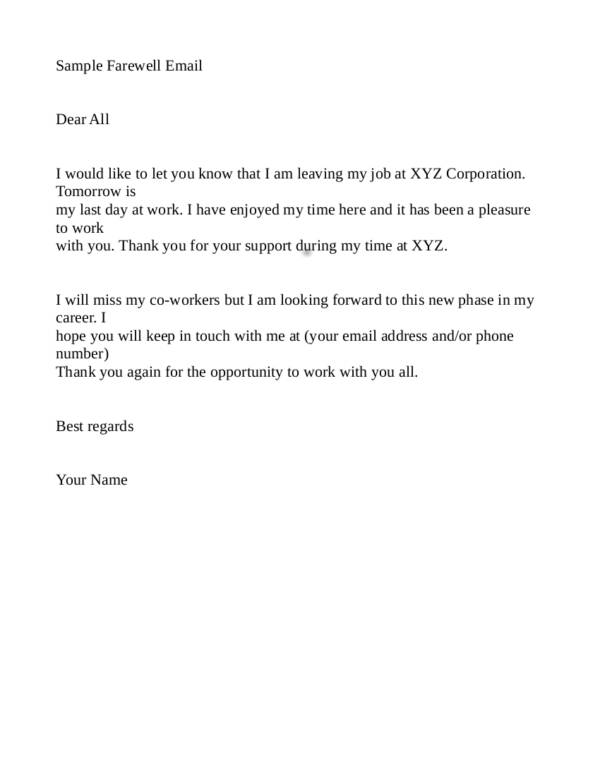There may be several reasons why employees are dissatisfied with their jobs. It is the characteristic of our generation to constantly seek out better opportunities by resigning from a job that makes one feel stagnated. When done in small doses, this can be a great thing since by resigning from our current jobs, we are able to embrace better job positions and projects work that may come our way. That is why, if you are currently facing a situation wherein you are left with no other choice but to leave your current job, then it is a good idea for you to send a resignation letter to your manager or employer.
When writing a resignation letter, you have to be careful that you are able to follow a proper letter format and include the information that is essential to the type of resignation letter you are making. If you are in the process of writing a resignation letter, then you came to the right place! In this article, we provide you with insightful information on how to write a resignation letter and the things you must do before sending one. Moreover, we also have resignation letter templates that you may download easily. What are you waiting for? Read on below and download our templates now!
Early Retirement Resignation Letter Template
Immediate Resignation Letter Due to Illness Template
Accept a Resignation Letter Template
Email Resignation Letter Without Notice Period Template
Resignation Letter Going Back to School Template
Resignation Letter for Personal Reasons Template
Appreciative Resignation Letter Template
Defining a Resignation Letter
A resignation letter is the letter sample that is sent by employees to their immediate head, manager, employer, or to the human resource manager (if he/she belongs in a large company). To some, a resignation letter serves as the primary notice of one’s intent to resign; while to some, it may only be sent as a mere formality.
Whatever the reason you may have for leaving your job, you have to make sure that the resignation letter you would write is in accordance with the present situation or context that has surrounded your decision to resign. Whether you are about to write a resignation letter due to personal reasons, a maternity resignation letter, or an immediately effective resignation letter, you have to ensure that it has the proper format and content. For reference, you may download our informative templates on this page or check out our website for more.
Sample Resignation Letter for a Job Template
Thank-You Resignation Letter Template
Before Writing a Resignation Letter
Are you stuck in the crossroads of indecision where you are wondering whether resigning is the best solution to your predicament? Or perhaps you are dead set on resigning, however, your only problem is that you do not know how to go about the process of resigning? Lastly, if you are not experiencing any of those mentioned situations, then perhaps you are merely looking for ways to smoothen the resignation process? Whichever case you may belong in, you would definitely find the discussions below worth your while as it contains an outline of things you have to do before writing a letter. Moreover, after reading these steps, you may continue reading below in order to learn how to write a proper resignation letter.
Here are the steps you must take before commencing your resignation letter writing:
Ask yourself the most important question first.
Why the need to resign? Not all companies and industries are alike. Some are more lenient than others when it comes to the rate of employees that they allow to leave their companies. That is why, in order to protect your reputation as a worker, you must not make a hasty decision when it comes to resigning. Of course, you are here reading this article analysis because most probably you are already intent on resigning. However, for those reading this with doubts in their heads, then it is time for you to take a step back and consider asking yourself these things first:
- Ask yourself why you want to resign.
- Is it an immediate need?
- Is resigning the most financially wise course of action plan for you to take?
- For instance, do you have another job offer waiting for your acceptance?
- If you are already considering a job offer from another company, does it provide you with more career growth opportunities or are you merely considering it for a change of scenery?
- Or are you planning to leave because you don’t want to properly talk to your immediate head or to your human resource manager pertaining certain areas of your job functions and work environment that is affecting your motivation to scope of work?
If the reason why you want to leave your otherwise lucrative and progressive job is the last one, then perhaps the key to your problem is not resignation but having a proper discussion with whoever has the power to make the alterations necessary in order to remove the source of your demotivation.
If you are finding it hard to discern whether or not the reason for your resignation is a proper one, here are some of the most commonly acceptable grounds for resignation:
- The employee’s acceptance of another job offer letter that promises higher salary rate and better career growth opportunities
- The employee’s suffering from a grave illness or physical injury
- The employee’s intense bereavement of a loved one
- The relocation of the employee’s family to another area that makes it impossible for said employee to attend to his/her daily job functions on time
- Other personal reasons
Set up a meeting with your superiors.
Now that you have made your final decision that, indeed, resigning is the most beneficial course of action for you to take, then it is now time for you to commence the resignation process documentation. As much as you can, avoid falling into the trap of relying on a resignation letter alone. You have to remain formal and respectful to your employer by setting up a short meeting with them in order for you to politely tell them of your decision to resign. There are several advantages in talking to your employer, immediate head/manager, or HR before handing in your resignation letter. Some of the most notable advantages are the following:
- You are showing them how much you value the trust they have given to you by hiring you as one of their employees.
- You have the chance to tell them your reason for resignation in a manner that would make your manager or employer empathize with you.
- You are preserving the bridge that connects you to your manager or employer thus, it will be easier for you to ask them to write you a job recommendation letter in the future.
- It allows your employer or manager to rethink their current policies in order sheet to cater to your needs in a way that might make you decide to stay in the company after all.
Check the employment contract to know the proper process of resignation.
After you have talked to your immediate head, then you need to take care that you are following the proper process of resignation as stated in your company rules and guidelines as well as in your employment contract.
Understand the governing laws on proper notice periods.
What is a notice period? A notice period is the time that spans between the moment you have submitted your resignation letter and the moment when your resignation would fully take effect. This means that the observation of a notice period obligates you to render your services for a specific amount of time after you have sent in your resignation letter. In order to know the duration of the notice period, you have to check the governing laws of your state. If there are no provisions pertaining to a proper notice period, you have to check the rules of your company. Lastly, check the employment contract that you have signed upon the moment you accepted your job offer in your current company. If you can’t find any provision or term regarding notice periods, then it is still proper for you to observe at least a two-week notice period—as this is commonly considered as an acceptable length of time.
Decide on the medium.
This is a pretty simple step. All you need to do is decide whether or not you want to send your resignation letter through email writing, hand-carry, or the traditional mailing route. Whichever mode of delivery you prefer, make sure that you will inform your recipient that you have sent them a letter. You must do this because most managers and employers are busybodies and they may fail to check some of their mail. That is why it is your job to make sure that they are able to read your letter on time or as soon as possible.
Professional Resignation Letter Template
Resignation Letter with Notice Period Template
Sample Personalized Resignation Letter Template
Formal Resignation Letter Template
Simple Resignation Letter Template
When Writing a Resignation Letter
Do you need any help in wriitng a resignation letter? Here are some basic steps that can guide you as to the proper way of writing a formal resignation letter:
- Write the customary heading.
- Start with writing the block that contains your return address (name, job position title in your company, complete address).
- Leave one space below this block then write the date when you are sample planning to send your resignation letter. Then leave another space below the date.
- Write the inside address that comprises of the details of your immediate head, human resource manager, or employer.
- Two spaces below the heading, you can then write the salutation, which can be any of the following:
- “Dear Mr.”
- “Dear Ms.”
- “Dear Sir”
- “Dear [insert appropriate professional title]”
- After the salutation, start your letter with a sample brief greeting. You may simply write, “Good day!”
- Start your letter’s body by introducing yourself and your position in the company. A brief introduction will do. This is necessary since you must not assume right away that your recipient knows you.
- Then state your decision to resign from your job position on a specific date. In this part of your letter, remember to consider the proper notice period that is prescribed by your company and state a date that is in line with said notice letter period.
- After you have explained why you want to resign, you may then proceed on thanking your recipient for the opportunities given to you that have led you to grow and develop certain skills and most of all, your work ethic.
- Conclude your letter by offering your willingness to train the person who would fill in your position once you vacate it. You may write this part in the following manners:
- “I would like to offer my services to our company for the next two weeks by mentoring the person whom you deem fitting to fill in my job position.”
- “I understand the gravity of my job functions and I promise to conduct a proper turn-over with the person who is to replace me.”
- Finally, end your letter sample with a polite remark. It can range from the most succinct and formal, “Sincerely,” to the more intimate, “Your truly/Warmest regards.” It is entirely up to you whichever closing remark you would prefer. Make sure that you choose one that is appropriate to the level of relationship you share with your manager or employer.
Short Notice Resignation Letter Template
Basic Resignation Letter Template
E-mail Resignation Letter Template
Dos and Don’ts in Sending a Resignation Letter
Here are some additional dos an don’ts you can follow to help keep you on the right track when writing your employment resignation letter:
- Don’t ever write about unnecessary matters. While it is good to remain friends with your manager or employer, it is unwise for you to incorporate your friendly concerns or chatter in the resignation letter you are writing. Always remember that a resignation letter is a formal letter and it can be used for future legal sample references in the future.
- Don’t assume an intimate and personal tone no matter how close you are to the recipient.
- Don’t ever write spiteful remarks in your letter. No matter how justified you may think it to be for you to blame the company’s system or the rules of the company, avoid from doing so. This is to remind you of the fact that since you are already resigning, there is no point at all for you to make any complaints—justified or otherwise. If you are still in the complaint level, then perhaps you don’t want to resign at all. In such a case, it is best for you to properly discuss work issues with the proper head or manager involved so that they can provide you with a proper remedy for your concern.
- Do write your letter using the proper spacing, font size, and sample paper size. If you are a newbie to writing a resignation letter, you may check out our resignation letter format templates that are available for easy download. Simply click on the link provided.
- Do send your resignation letter as soon as possible, especially if you have already accepted a job offer from another company.
- Do notify your recipient regarding the letter you have sent right after you have sent it. This is to ensure that they would find the time to read your letter despite their busy sample schedule
- Do write in clear and concise language. Avoid using highfalutin words and overly complex sentence arrangements as this can give off the vibe of aloofness. In fact, you would sound condescending and that would rarely play to your benefit when dealing with someone who is of a higher position than you.
Related Posts
Teacher Letter of Recommendation Samples & Templates
Payment Letter Formats Samples & Templates
Business Proposal Letter to Client Samples & Templates
Company Introduction Letter Samples & Templates
Resignation Letter for Medical Samples & Templates
Letter of Intent Samples & Templates
Letter of Intent for a Job Samples & Templates
Lease Proposal Letter Samples & Templates
Letter of Inquiry Samples & Templates
Character Reference Letter Samples & Templates
Claims Letter Samples & Templates
Response Letter Sample & Templates
Follow Up Letter Samples & Templates
Sample Project Proposal Letter Templates
Donation Letter Samples & Templates

